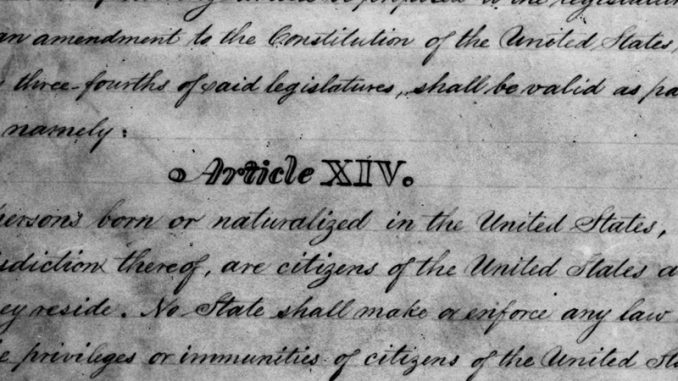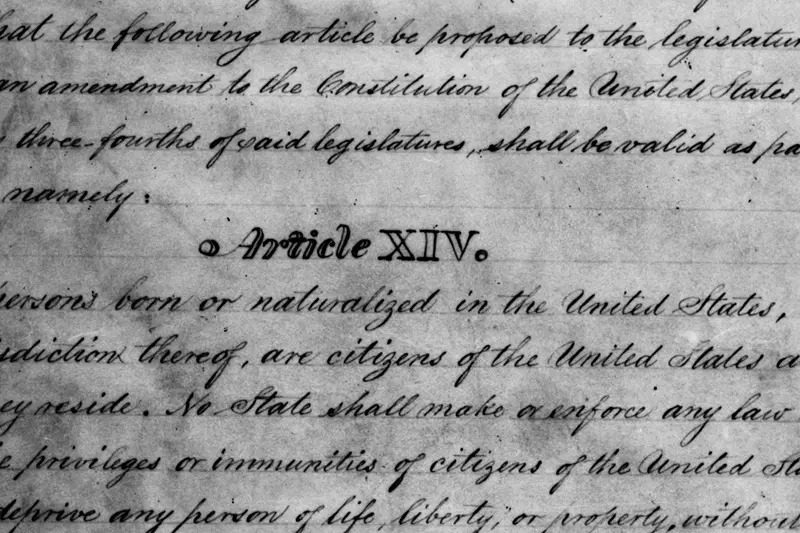

OAN Staff Gabriella Sable
1:13 PM – Monday, February 10, 2025
The Immigration Reform Law Institute argues that to be a United States citizen at birth under the 14th Amendment of the U.S. Constitution, a person must be born in the United States to parents who were legally residing in the country at the time of the birth. This issue has gained attention after three judges blocked an executive order signed by President Donald Trump that sought to restrict birthright citizenship.
Advertisement
Senior Counsel at the Immigration Reform Law Institute Matt Crapo says that a 1898 United States Supreme Court case gives precedent to this reasoning.
“Our legal argument is based on an 1898 Supreme Court case, United States versus Wong Kim Ark,” Crapo told One America News.
The case centered around whether or not Wong Kim Ark, who was born in San Francisco, California, was a citizen. He was born to parents who were not from the United States and were not eligible for citizenship under the Chinese Exclusion Act of 1882. The parents were merchants who had permanent residence in the United States.
Under the 14th Amendment, “All persons born or naturalized in the United States, and subject to the jurisdiction thereof, are citizens of the United States and of the State wherein they reside.”
Crapo explained that the case hinged on the question of what “jurisdiction thereof” meant.
“The case turned on what the meaning of the subject to the jurisdiction thereof meant,” said Crapo. “And the Supreme Court in a lengthy opinion held that in order to be subject to the jurisdiction it means to be owing a direct and immediate allegiance to the country.”
“And in that case, they held that foreign aliens who are permitted to live in the United States with the permission of the government are subject to the jurisdiction of the country,” Crapo continued.
Crapo added that he thinks the reason birthright citizenship hasn’t been challenged until now is because people didn’t understand the decision made by the court.
“Most people didn’t read this decision the way it was intended and it just wasn’t understood,” argued Crapo. “And the granting the citizenship to everyone was done without, thought to exactly what’s subject to the jurisdiction thereof meant.”
Crapo anticipates that the birthright citizenship issue will go up to the United States Supreme Court following injunctions by judges in Washington, Maryland and New Hampshire.
“I think it will definitely get to the Supreme Court,” predicts Crapo. “I expect the government to appeal any of these preliminary injunctions against the executive order. I suspect the, the Circuit Courts will act on these expeditiously because they are in appeals from a preliminary injunction.”
“There’s also the possibility the Supreme Court could take it directly on appeal,” continued Crapo. “If one of the parties ask. I don’t expect that to happen, but it, it’s a possibility.”
Stay informed! Receive breaking news blasts directly to your inbox for free. Subscribe here. https://www.oann.com/alerts
Advertisements below

